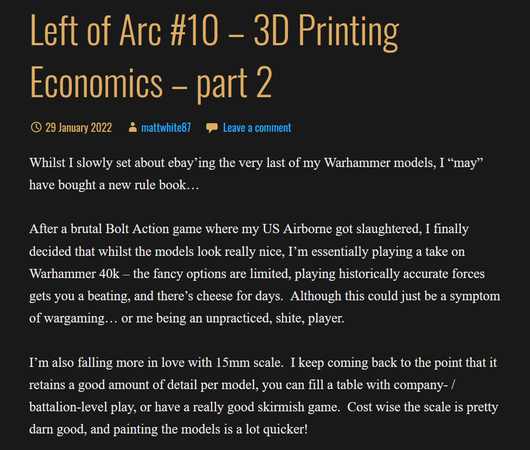I keep playing around with different concepts for magnetic flight stands.

In the Hurricanes & Magnets workbench article, I showed a simple technique for mounting aircraft to flight stands using magnets. While this works, it has two drawbacks: the models easily change facing ("spin") on the stands, and they can be knocked off the stands by sudden motion.
In the Simple Magnetic Flight Stands workbench article, I showed how to make a sleeved magnetic flight stand – the cylindrical magnet on the model slides into a brass cylinder on top of the flight stand, with a second magnet in the bottom to hold it in place. This technique provided a sturdier connection with less chance of the model being knocked off the flight stand, but did not entirely solve the accidental rotation problem.

For this project, I'm using some Games Workshop Battlefleet Gothic Chaos starships. Above, you can see the upper hull of one of the three models, which I've already begun to customize.

This time, the magnet I'll be planting into the model will be square cross-section instead of round.

The picture above shows the drill passing through the lower hull. Because this is a plastic model, the hole's diameter should match the side-to-side measurement of the magnet. A hobby knife or a square-sided needle file can then be used to carve out the 'corners', giving a nice, snug hole to glue the magnet into. Do your best to orient the magnet so that it is perfectly vertical.

Gap-filling superglue works well for this, or you could use two-part epoxy – you want something that will grip the ceramic magnets. Make sure you've got the magnet polarity right! Wait a day before doing any further assembly.

I also wanted to experiment with using soft plastic toys to add more Chaos to my ships. In the picture above, I have cut the spongy plastic toys apart, drilled holes, and superglued wire into the holes.

The new parts could then be inserted into holes drilled in the plastic hull, and gap-filling superglue was used to fill in any gaps. The ship shown above received tentacles, as well as a seahorse head and tail. I also used other weapons and masts from my bits box.

The magnet conveniently sticks to my tool, turning it into a holder!

Then the ships were painted. The model above was modified with the addition of a spare Lord of the Rings troll weapon as a ram, and some new masts.

Keep the magnet clean of paint, as that will interfere with sliding into the flight stand.

Meanwhile, I grabbed three random flight stands out of my bins, and following the technique from my previous article, added hollow brass to the top (with a magnet on the bottom). Be careful to keep the brass vertical, and oriented to however you want your ship to face. Also doublecheck the magnet's polarity! I added a steel disk on the bottom for storage purposes. The stands were spray-painted gloss black.

So here's the finished fleet on their new magnetic flight stands. "Spin" problem solved!

The 'ram ship' looks nice and level, but why is it facing the point instead of the base side? Oh well…

The 'seahorse' ship seems a little bow-heavy, probably an issue with mounting the magnet in the hull.

And the facing is off, but that's because I used the same flight stand for both photos. ![]()

The third ship is also a little bow-heavy – could it be the flight stand, not the model? Hmmm…

This ship has a demon's hand forming on the rear deck.
Summing up: These bases solve the "spin" problem, but I had some problems getting them straight and true. The magnets work nicely, but are they necessary? Would a purely mechanical slide-into-place system work as well?
Also note that if you try this on a metal ship, you'll probably need to drill a hole with a diameter equal to the distance between the points on your magnet. That's because you can't cut metal like you can plastic.
Lastly, also note that this technique won't work on very small models, because drilling the hole is likely to weaken and destroy the model.









